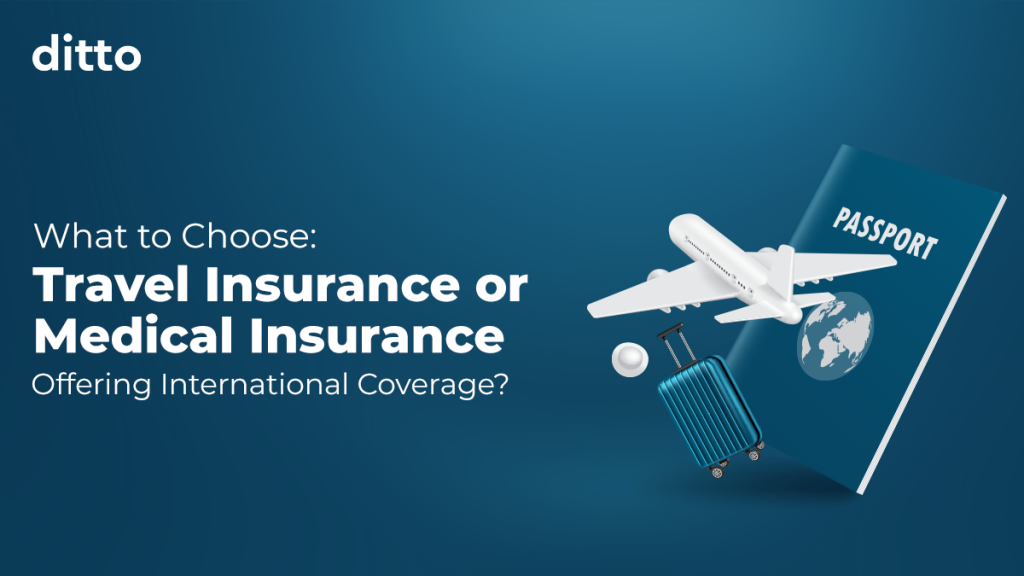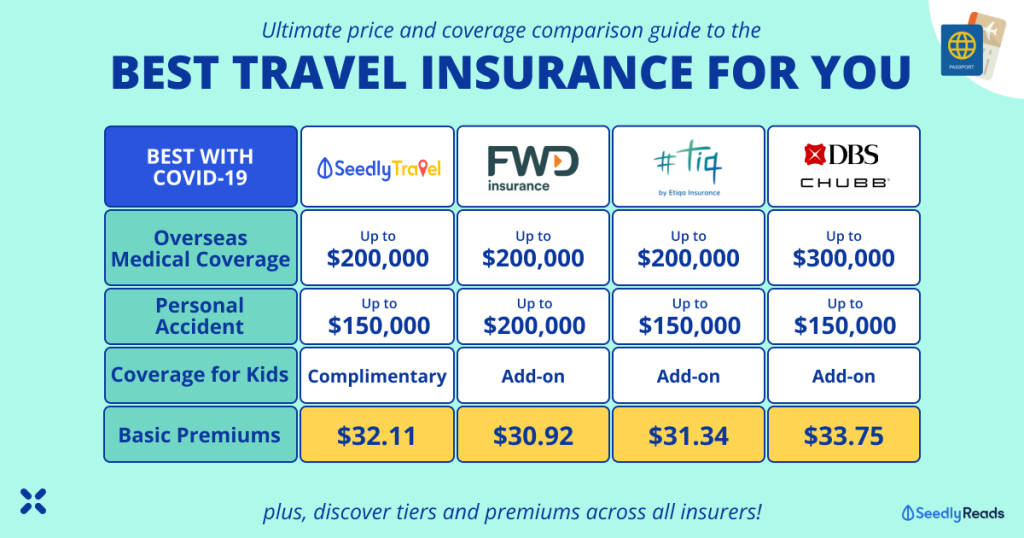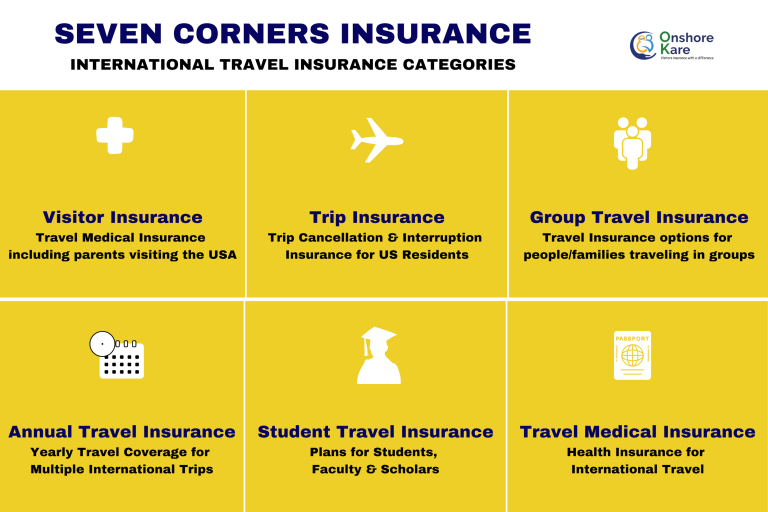International Travel Health Insurance for Seniors A Comprehensive Guide
International travel health insurance for seniors is crucial for a safe and smooth trip. Navigating foreign healthcare systems can be complex, especially for those with pre-existing conditions or chronic illnesses. This guide explores the essential aspects of travel insurance, tailored specifically to the needs of senior travelers.
From understanding policy features and benefits to evaluating cost-effective options, this guide provides a clear overview of international travel health insurance. It details essential considerations for seniors, including pre-trip health checks and coverage for chronic conditions. Crucially, it delves into the claims process, highlighting the support available to senior travelers in medical emergencies abroad. The guide also compares various insurance providers, their pricing models, and specific coverage for seniors’ unique health needs.
Overview of International Travel Health Insurance

Source: air-dr.com
International travel health insurance is a crucial component of any senior traveler’s preparation. It provides financial protection against unexpected medical expenses during trips abroad, a vital consideration given the increased likelihood of health complications in older individuals. This comprehensive coverage offers peace of mind, allowing seniors to focus on enjoying their journeys without financial anxieties.
Senior travelers face unique healthcare challenges during international trips. Factors like pre-existing conditions, chronic illnesses, and potential language barriers increase the need for robust medical support. International travel health insurance mitigates these risks, ensuring access to quality medical care, regardless of location.
Common Features and Benefits
International travel health insurance policies typically cover medical emergencies, including hospitalizations, surgeries, and doctor visits. Essential benefits often encompass emergency medical evacuation, repatriation of remains, and pre-authorization for necessary medical treatments. These features provide comprehensive support for a wide range of potential scenarios.
Coverage for Pre-existing Conditions
Many international travel health insurance plans offer coverage for pre-existing conditions, although limitations may exist. These limitations often vary between plans, with some policies providing coverage for a specific time frame following the policy’s commencement, or requiring a waiting period. Thoroughly reviewing the policy details is crucial for understanding these limitations and ensuring adequate coverage.
Types of International Travel Health Insurance Plans
Various types of international travel health insurance plans cater to different needs and budgets. Some plans emphasize comprehensive coverage, while others offer more tailored options, possibly including coverage for specific medical treatments or geographic regions. The diverse options allow travelers to choose a plan that aligns with their specific requirements and budget. Plans may vary in coverage limits, deductibles, and co-pays, so understanding these differences is crucial.
Key Differences Between Plans
Significant differences exist between international travel health insurance plans. Coverage limits, often expressed as maximum payouts for specific treatments or overall trip costs, are a crucial factor. The inclusion or exclusion of pre-existing conditions, as discussed earlier, significantly influences the policy’s suitability. Emergency medical evacuation services, including transportation and accommodation, can vary in scope and cost. Understanding the specific coverage for these essential services is vital.
Coverage Limits and Exclusions
Policy details regarding coverage limits and exclusions are critical. A policy might exclude coverage for specific medical conditions or treatments, like cosmetic procedures. Carefully reviewing the policy’s fine print is paramount to understanding what’s covered and what isn’t. Coverage limits per medical event or for the entire trip are important factors to consider when choosing a plan.
Factors to Consider When Choosing a Plan
Several factors influence the choice of international travel health insurance. Travel duration, destination, and the traveler’s overall health status play a significant role. Reviewing the policy’s exclusions, including specific medical procedures or geographical limitations, is crucial. Senior travelers should consider the specific needs of older individuals, such as pre-existing conditions and potential chronic health issues. Carefully assessing the policy’s emergency medical evacuation provisions is essential for peace of mind.
Essential Considerations for Seniors
International travel health insurance for seniors necessitates careful planning and consideration. Seniors often have unique health needs and pre-existing conditions, making comprehensive coverage crucial for a safe and worry-free trip. This section presents vital factors to evaluate when selecting a suitable policy.
Choosing the right plan requires a thorough understanding of individual health conditions and potential needs. A policy that adequately covers chronic conditions and potential emergencies is paramount. The right plan will ensure that necessary medical care is accessible and affordable during travel.
Medical History and Potential Health Conditions

Seniors should carefully disclose their complete medical history to the insurance provider. This includes any pre-existing conditions, such as heart disease, diabetes, or arthritis. Honesty about past illnesses and ongoing treatments is essential for accurate risk assessment and appropriate coverage. Policies may have exclusions or limitations based on pre-existing conditions, so it is vital to understand these details before committing to a plan. For example, a policy might exclude coverage for a pre-existing condition that worsens during travel.
Pre-trip Medical Checkups and Consultations
Before international travel, seniors should consult their primary care physician. This consultation allows for a thorough review of current health status, medications, and any potential travel-related health concerns. The physician can offer advice on necessary vaccinations, preventive measures, and potential health risks associated with the destination. For instance, a senior traveling to a region with a high risk of malaria would benefit from a consultation to discuss preventative measures and necessary medications.
Coverage for Chronic Conditions and Prescription Medications
Adequate coverage for chronic conditions and prescription medications is crucial. Seniors often rely on specific medications for managing their health. Insurance policies should clearly Artikel coverage for these medications, including potential costs associated with obtaining them during travel. Some plans may have restrictions on the types or amounts of medications covered. It is vital to review the policy’s specifics regarding coverage for chronic conditions and prescription medications.
Coverage for Various Medical Emergencies
International travel health insurance for seniors should offer comprehensive coverage for a wide range of medical emergencies. This includes accidents, illnesses, and dental issues. The policy should articulate the extent of coverage for each type of emergency. For example, a policy may have a higher payout for a serious accident than for a minor illness. Compare and contrast the coverage options for different emergencies, ensuring the chosen plan adequately addresses potential risks.
Common Exclusions and Limitations
| Category | Common Exclusions/Limitations |
|---|---|
| Pre-existing conditions | Coverage may be limited or excluded for conditions present before the policy’s effective date. |
| Emergency Evacuations | Specific conditions, destinations, or circumstances might restrict or limit coverage for emergency medical evacuations. |
| Dental Care | Dental care may be excluded or limited, with only emergency treatment covered in some cases. |
| Mental Health | Coverage for mental health issues might be limited or require specific conditions. |
| Pre-existing dental conditions | Dental care for pre-existing conditions might not be covered, requiring a separate dental plan. |
Claims Process and Support
Navigating the claims process for international travel health insurance, especially for seniors, can feel daunting. Understanding the steps involved and the available support can alleviate anxieties and ensure a smooth process in case of a medical emergency. This section articulates the claims process, emphasizing the procedures pertinent to seniors and providing valuable insights into handling medical emergencies abroad.
Claims Process Overview
The claims process typically involves several steps. First, contact the insurance provider immediately upon needing medical attention. They will provide instructions and guidance, including the necessary documentation. This might involve obtaining medical reports, receipts, or a pre-authorization for procedures. A crucial part of the process is accurate documentation, as it directly impacts the claim’s processing.
Filing a Claim During a Medical Emergency Abroad
In a medical emergency abroad, immediate action is paramount. Contact the insurance provider’s 24/7 emergency assistance line. Provide details about the situation, including the location, nature of the emergency, and the required medical care. The provider will guide you through the necessary steps, which might include arranging for medical transportation or connecting you with a local medical professional. This support is critical in a stressful situation, ensuring appropriate medical care and efficient claim processing.
Types of Claim Support
Different insurance providers offer various levels of support during the claims process. This support often includes 24/7 assistance, multilingual support, and local assistance.
| Type of Support | Description |
|---|---|
| 24/7 Assistance | This is crucial, offering immediate support and guidance in any time zone. Providers often have dedicated lines for emergencies, ensuring prompt responses and direction. |
| Multilingual Support | For international travel, this is vital. Multilingual support allows clear communication with providers regardless of the local language, streamlining the process and reducing potential misunderstandings. |
| Local Assistance | Some providers offer assistance from local representatives who can facilitate communication with hospitals and other medical providers. This can be invaluable in unfamiliar environments, helping seniors navigate the healthcare system. |
Importance of Comprehensive Documentation
Accurate and complete documentation is essential for a smooth claim process. This includes medical reports, receipts, pre-authorization forms, and any other relevant documents. Clear and concise records of expenses, along with detailed descriptions of the medical services rendered, are vital. This documentation acts as proof of the services received and the necessity of the medical care. This helps the insurance provider verify the claim accurately and efficiently.
Claim Processing Time
Claim processing times vary significantly between insurance providers. Factors influencing the processing time include the complexity of the claim, the documentation provided, and the specific provider’s internal procedures. Generally, claims for routine medical expenses might be processed within a few weeks. However, more complex cases, involving extensive procedures or substantial costs, may take longer. It’s crucial to understand the average processing time from the provider’s policy details. Some providers might have specific timeframes for different types of claims.
Cost and Comparison
International travel health insurance for seniors comes with a range of costs, influenced by various factors. Understanding these factors and comparing different providers’ pricing models is crucial for finding the most suitable and cost-effective plan. This section will detail these influences, offer comparisons, and provide practical tools to aid in your decision-making process.
Factors Influencing Insurance Costs for Seniors
Several factors play a role in determining the premium for international travel health insurance for seniors. Age is a significant consideration, as seniors often have pre-existing conditions or require more comprehensive coverage. The destination’s medical infrastructure and associated costs also affect the premium. The duration of the trip and the chosen coverage level, including emergency medical evacuation, are key variables. Specific medical requirements, such as pre-existing conditions or chronic illnesses, also directly impact the cost.
Comparison of Insurance Provider Pricing Models
Different insurance providers employ various pricing models. Some providers might offer tiered plans, allowing flexibility in choosing coverage levels. Others may offer a fixed premium for a specific duration and destination, or have a system based on an estimated cost of potential medical emergencies. Factors such as the provider’s reputation, financial stability, and customer service history should also be considered. A thorough review of the fine print of each plan is essential.
Cost Comparison Table – Different Plans
| Insurance Provider | Plan Name | Coverage Level (Example) | Annual Deductible | Estimated Premium (USD) |
|---|---|---|---|---|
| GlobalCare | Global Explorer | Comprehensive coverage, including pre-existing conditions | USD 1,000 | USD 500 |
| WorldWide Health | Senior Advantage | Basic coverage, limited pre-existing condition coverage | USD 500 | USD 350 |
| TravelSafe | Silver Shield | Moderate coverage, including emergency medical evacuation | USD 2,000 | USD 425 |
Note: Premiums are estimates and may vary based on individual circumstances.
Cost Comparison Table – Single vs. Family Policies
| Insurance Provider | Policy Type | Coverage Level (Example) | Estimated Premium (USD) |
|---|---|---|---|
| GlobalCare | Single | Comprehensive | USD 500 |
| GlobalCare | Family (2 Adults) | Comprehensive | USD 850 |
| WorldWide Health | Single | Basic | USD 350 |
| WorldWide Health | Family (2 Adults) | Basic | USD 600 |
Note: Family policies often have a higher premium than single policies due to the increased coverage required.
Potential Savings and Cost-Effective Solutions
Seniors can potentially save money by carefully comparing plans, considering their specific needs, and researching various providers. Bundling travel insurance with other services like flights or hotels might also offer cost-effective options. Choosing a plan with a higher deductible can lower the premium, but it’s essential to be prepared for potential out-of-pocket expenses. Evaluating the financial stability of insurance providers is critical. Reviewing customer testimonials and comparing claims processing times can provide valuable insight.
Coverage for Specific Needs of Seniors

Source: internationalinsurance.com
International travel health insurance for seniors requires careful consideration of specific needs, often differing from those of younger travelers. Understanding the nuances of pre-existing conditions, chronic illnesses, and potential long-term care requirements is crucial when selecting a policy. This section delves into these essential aspects to ensure a smooth and secure travel experience.
Pre-existing Condition Coverage
Senior travelers frequently have pre-existing medical conditions. Comprehensive policies recognize this reality and provide coverage for these conditions, though terms and limitations may vary. It is vital to review the policy wording carefully to understand what conditions are covered, and the associated limitations or exclusions. Many policies have waiting periods or limitations based on the severity of the condition. Crucially, some insurers may exclude coverage for conditions that have worsened significantly since the policy was purchased.
Chronic Illness Coverage
Chronic illnesses, such as diabetes, heart conditions, and arthritis, are common among seniors. Insurance policies must account for the ongoing management and potential exacerbation of these conditions during travel. Policies should clearly define how chronic illnesses are handled. Coverage should include necessary medications, medical consultations, and emergency treatments related to the chronic illness. The policy should also specify whether there are limits or exclusions on treatments or medications related to chronic conditions.
Coverage for Medical Equipment
Seniors may rely on specialized medical equipment, such as walkers, wheelchairs, or oxygen tanks, for mobility and health maintenance. Appropriate coverage is essential for ensuring access to this equipment during travel. A comprehensive policy should explicitly address the coverage for transporting and using this equipment. This includes potential costs for rentals, repairs, or replacements in case of damage or malfunction during the trip.
Long-Term Care or Hospitalization Coverage, International travel health insurance for seniors
Long-term care or hospitalization, potentially necessary during a senior’s trip, is another crucial aspect of coverage. Policies should articulate the extent of coverage for extended care and hospitalization, including costs associated with medical facilities, nursing care, and other related expenses. The policy should specify daily limits or overall maximum coverage amounts.
Dental Procedures and Specialized Medical Needs
Dental procedures, vision care, and other specialized medical needs may also arise during travel. Insurance policies should clarify coverage for these procedures. Review the specific policy provisions to understand the level of coverage, as some policies may have higher deductibles or limits for these types of procedures. Consider policies with coverage for ambulance services, emergency medical evacuation, and other related services.
Examples of Specific Insurance Provider Coverage
Specific examples of how providers handle senior-specific needs are difficult to provide without access to real-time insurance provider data. To find this information, it is best to directly consult the provider’s website, contact their customer service department, or consult with a financial advisor specializing in travel insurance. These resources can offer the most accurate and up-to-date information about a provider’s coverage policies.
Insurance Provider Profiles: International Travel Health Insurance For Seniors
Selecting the right international travel health insurance provider is crucial, especially for seniors. Careful consideration of reputation, service quality, and specific coverage for senior needs is vital. This section provides an overview of reputable providers and highlights key factors to consider when comparing plans.
Reputable providers often demonstrate a strong track record of handling claims efficiently and providing exceptional customer service. Senior-specific plans typically prioritize factors such as pre-existing conditions, chronic health issues, and potential age-related health concerns, tailoring coverage to meet the unique needs of this demographic. Understanding the available customer reviews and testimonials is a critical step in this process.
Overview of Reputable International Travel Health Insurance Providers
Several international travel health insurance providers offer plans catering to the needs of seniors. Choosing a provider with a solid reputation and positive customer feedback is essential. Understanding the specific types of coverage offered and the associated costs is critical.
Customer Reviews and Testimonials for Senior-Specific Plans
Customer reviews and testimonials provide valuable insights into a provider’s service quality and the effectiveness of their senior-specific plans. Seniors seeking international travel insurance should actively seek out reviews specifically focused on the experiences of older travelers. These reviews often highlight the provider’s responsiveness to claims, the clarity of their policies, and the overall support offered to senior policyholders.
Profiles of Major International Travel Insurance Providers
| Provider | Reputation | Service Quality | Senior-Specific Plan Features |
|---|---|---|---|
| Global Medical Insurance | Well-regarded for comprehensive coverage. | Generally praised for efficient claims handling. | Extensive coverage for pre-existing conditions and chronic illnesses, with clear guidelines for seniors. |
| Travel Guard | Known for its extensive network of providers. | Mixed reviews, some reports of slow claim processing. | Offers plans with tailored coverage for various medical needs, including age-related concerns. |
| World Nomads | Popular among budget-conscious travelers. | Generally praised for clear policy terms. | Provides a broader range of coverage options for seniors, emphasizing flexibility and affordability. |
| Allianz Global Assistance | Strong reputation for customer service. | Highly rated for multilingual support and claims processing. | Provides customized coverage options for seniors, often with dedicated senior representatives. |
Comparison of Top Providers’ Senior Plans
| Feature/Benefit | Global Medical Insurance | Travel Guard | World Nomads | Allianz Global Assistance |
|---|---|---|---|---|
| Coverage for Pre-existing Conditions | Excellent | Good | Good | Excellent |
| Emergency Medical Evacuation | Comprehensive | Extensive Network | Limited | Comprehensive |
| Claim Processing Time | Average | Variable | Average | Excellent |
| 24/7 Customer Support | Yes | Yes | Yes | Yes |
Importance of Researching Provider Reviews and Ratings
Thorough research of provider reviews and ratings is essential before selecting a travel insurance plan. Reading independent reviews and testimonials from other seniors can offer invaluable insights into a provider’s strengths and weaknesses. This allows for informed decisions, leading to a more satisfactory and secure travel experience. Websites dedicated to travel insurance reviews can provide a valuable resource for comprehensive information.
Essential Documents and Information
Proper preparation is key to a smooth and stress-free international trip, especially for seniors. Having the right documentation and understanding your insurance coverage are essential for navigating potential medical situations abroad. This section details the critical documents and information seniors should gather before departure and during the claims process.
Crucial Documents for Travel
Thorough preparation for travel involves assembling essential documents. This includes not only travel-related papers but also personal medical records. This comprehensive approach ensures a swift and efficient claim process should the need arise.
- Passport and Visas: Valid passports and any necessary visas are paramount. Ensure they are valid for the duration of your stay and beyond your planned return date. Expired or invalid documents can lead to travel delays and complications.
- Medical Records: A copy of your medical records, including details of pre-existing conditions, medications, allergies, and relevant medical history, is crucial. Provide your insurance provider with this information to ensure accurate coverage.
- Insurance Policy Documents: Carry a copy of your international travel health insurance policy. This includes policy details, coverage limits, and emergency contact information. This will facilitate claims processing should a medical emergency arise.
- Proof of Accommodation: Booking confirmations or hotel vouchers provide evidence of your travel arrangements, which is often requested during the claim process.
- Flight Information: Copies of flight tickets or booking confirmations are important in case of emergencies.
Informing the Insurance Provider
Transparency and communication are vital when dealing with pre-existing conditions. Honesty about your health status ensures accurate coverage and appropriate claim processing.
- Disclosure of Pre-Existing Conditions: Full disclosure of pre-existing conditions is essential. This includes details about chronic illnesses, allergies, and any ongoing medical treatments. Failure to disclose may affect your claim’s approval.
- Special Needs: Mention any specific needs, such as mobility assistance or dietary restrictions, when contacting the insurance provider. This allows the insurer to prepare for possible scenarios and ensure appropriate support.
Obtaining Medical Certificates or Authorizations
In some cases, medical certificates or authorizations might be necessary. These can be crucial for specific treatments or procedures.
- Necessary Medical Authorizations: Your doctor might need to provide authorization for specific treatments or procedures. This ensures that the insurance provider approves the cost of the treatment. Discuss the process with your doctor and insurance provider in advance.
Required Documents for Claims
A well-organized list of required documents facilitates a smooth claim process.
| Document Type | Description |
|---|---|
| Copy of Insurance Policy | Provides details of coverage and limits. |
| Proof of Expenses | Receipts for medical services, medications, or other relevant expenses. |
| Medical Records | Details of pre-existing conditions, current health status, and medical history. |
| Doctor’s Statements | Medical reports, diagnoses, and treatment plans. |
| Emergency Contact Information | Contact details of family members or friends. |
Copies of Essential Documents
Having multiple copies of crucial documents provides security and convenience.
- Importance of Copies: Keeping copies of essential documents, such as passports, visas, and insurance policies, allows easy access if originals are lost or damaged. This is especially important in case of emergency situations.
Traveling to Specific Regions
International travel health insurance isn’t a one-size-fits-all solution. The specific coverage you need significantly depends on the region you’re visiting. Different countries boast varying healthcare systems, accessibility, and costs, thus influencing the level of insurance required. Understanding these regional nuances is crucial for selecting appropriate coverage and ensuring a smooth trip.
Regional healthcare systems and local facilities can substantially impact your insurance requirements. For example, a developed nation with robust public healthcare might require less extensive coverage than a developing country with limited access to specialized care. This difference directly affects the type and extent of medical assistance you can anticipate if you need it during your travels.
Variations in Coverage by Region
Different regions present unique healthcare challenges and access levels. Therefore, insurance policies designed for specific areas may include tailored coverage options. A policy intended for travel to a country with a strong public healthcare system may offer more modest coverage for medical emergencies compared to one designed for a region with limited access. The availability of pre-approved hospitals or medical providers within the region may also influence the insurance coverage.
Impact of Local Healthcare Systems
The local healthcare infrastructure plays a vital role in determining the appropriate insurance coverage. Countries with advanced medical facilities and readily available specialists generally require less comprehensive coverage. In contrast, areas with limited access to medical care necessitate more extensive coverage, encompassing a broader range of medical services and potentially higher out-of-pocket expenses. This means that coverage for emergency evacuation, or specialized care not available locally, might be essential in certain regions.
Insurance Comparison for Specific Countries

Insurance options for specific countries need to be assessed carefully. A comparison should consider the country’s healthcare system, medical facilities, and emergency services. For instance, traveling to a country with a robust public healthcare system, like some European nations, may necessitate less comprehensive private insurance compared to traveling to a region with a weaker healthcare system. The availability of pre-approved hospitals and medical providers in the region will also influence the required coverage.
Importance of Medical Facilities and Infrastructure
Understanding the medical facilities and infrastructure in different regions is crucial. A thorough assessment of local hospitals, clinics, and emergency services is essential. Knowing the quality of care available, the potential waiting times for treatment, and the availability of specialized care are vital for selecting appropriate insurance. The distance to the nearest medical facilities and the potential for medical evacuation must also be considered.
Recommended Coverage for Travel to Various Regions
| Region | Recommended Coverage Highlights |
|---|---|
| North America (e.g., USA, Canada) | Focus on supplemental coverage for specialized care, high deductibles, or pre-existing conditions. Emphasis on urgent care and emergency room access. |
| Western Europe (e.g., France, Germany) | Consider supplemental coverage for specialized care or pre-existing conditions. Focus on out-of-pocket expenses. |
| Developing Countries (e.g., parts of Africa, Asia) | Emphasis on comprehensive coverage, including emergency medical evacuation and repatriation. Crucial to consider potential limitations in local healthcare access. |
| South America (e.g., Brazil, Argentina) | Balance between local healthcare access and supplemental coverage for specialized care or pre-existing conditions. Assess medical facilities and infrastructure for your specific destination. |
Outcome Summary
In conclusion, securing international travel health insurance for seniors is a vital step in ensuring a worry-free and enjoyable experience. This guide has provided a comprehensive overview, covering essential considerations, claims processes, and cost comparisons. By understanding the specific needs of senior travelers and the options available, you can confidently plan your next adventure abroad. Remember to thoroughly research insurance providers, understand coverage limitations, and meticulously prepare all necessary documents before embarking on your journey.





